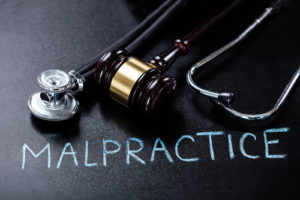How Can a Delayed Diagnosis Harm a Patient?
September 21, 2017
After a stress test and EKG had eliminated a diagnosis of potential heart disease, an Indianapolis man, who was suffering from severe heartburn, was misdiagnosed and treated for gastrointestinal reflux disease instead.
Much time passed and he still struggled with pain. Going back to the doctor, he was then given a nuclear stress test. The test’s measurements revealed he had severe blockage in five arteries.
A few days later, he was on the operating table having a quintuple bypass. He survived and is now healthy. But it was a close call. If he had gone on just a few days longer without the surgery, he most likely would have succumbed to a heart attack.
As can be seen, a delay in diagnosis can have serious consequences. Why had this man’s true diagnosis not appeared sooner? At any moment, he could have died of a heart attack.
Looking back later, it was clear that it was a problem of making assumptions.
He didn’t smoke or drink heavily. He wasn’t overweight and always had low blood pressure. And with the initial test showing no heart problems, their assumptions were further cemented.
But this is just one example. Delayed diagnosis can occur with any type of disease, including cancer. And in much the same way.
There are also as many ways for a delayed diagnosis to happen as there are illnesses and situations for it to arise. So, always be focused on the care and treatment you receive. Don’t assume medical staff is incapable of error. With a busy hospital or doctor’s office, the chances of errors such as mishandling of information, miscommunicating, and mislabeling can increase.
Also, if you are a patient, it is wise to seek out a second opinion. Also, ask a lot of questions when you are receiving care. And, do your own research about your symptoms and the treatment you are getting.
If you or a family member has been harmed due to a delay in diagnosis, a medical malpractice lawsuit may be the best option for you. Contact Hoyt & Hoyt, P.C. immediately to discuss your case.
The articles on this blog are for informative purposes only and are no substitute for legal advice or an attorney/client relationship. If you are seeking legal advice, please contact our law firm directly.






